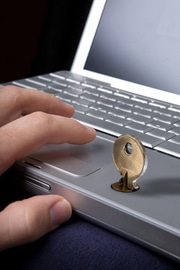How To Protect Your Computer at Risk
Let’s be real here: our computers are our lifelines. We work with them. We order things with them. We use them for entertainment. Our phones, tablets, and even iPods are all computers to their core. Our lives are very much revolve around computers. It would be hard to go a full day without them.
If a virus or malware hits your computers, it will be a major hassle to clean and secure your files. Of course, that is if you’re lucky to catch the problem in time. In some cases, your whole computer may be fried with no hope of retrieving any lost data. But it doesn’t have to be that way.
There are ways to protect your computer from the nightmare of spam, viruses, and malware. Common sense goes a long way in preventing the worst from happening. But taking care of a computer doesn’t always have to be a lot of work. It’s much easier than you think. Here are a few tips to save your computer from utter disaster.
Anti-Virus and Anti-Malware Programs
The installation of a reliable anti-virus program cannot be stressed enough, but it’s only one piece of the puzzle. You should also install a program that specializes in scanning for removing malware. These programs can regularly do a deep scan and clean of your entire computer.
Be careful when installing virus protection and malware cleaners. Some of them are legitimate while others will make the problem even worse. How can you tell you are getting a good program to protect your computer? Do your homework. It doesn’t take much to get on Google to check out which programs are recommended by reputable websites.
Anti-Virus typically focuses on protecting your email. Anti-malware programs are better at block malicious websites you visit or block a session hijacking attack.
Ad blocker is your friend!
Blocking pop-up ads will cut down on the chances of being a victim of computer infections, including ransomware. Ransomware is a nasty program that will hold your computer hostage until you pay up.
Pop-up blockers will lessen the chances of getting all sorts of malware or viruses. As well, your web surfing experience will much smoother. The browser you are using will probably have an ad blocker but you’ll need to activate it.
Back up everything!
In case your computer crashes for any reason, make sure everything backed up. Cloud backup programs have made this much easier. External hard drives are also good for backing up files, whether you set it up automatically or do it manually every once in a while. There is nothing worse than losing your treasured pics and videos when it doesn’t take much effort to copy them to another device.
Having a strong password will help too. Not having a password is like leaving your front door wide open. It’s not wise to have a weak password either. Some sites will require at least one capital letter, one number, and one symbol to be strong. However, many accounts your sign up for are not so picky. Choose a unique password for each of your accounts.
Keep all software up to date.
Out-of-date software is an invitation for malware and viruses. Within all of your computer programs, select “automatic updates” and you won’t have to worry about it. This includes your computer operating systems, whether it be Windows, Mac or any tablet.
For additional protection, a VPN might be a good way to go too. More people are looking for a secure way to enjoy their time on the internet. This will keep out spying eyes for sure. It does not take more to look up how to install a VPN either. Again, just be careful to look for a legitimate VPN system that will not mess up a computer.
Use Comment Sense. In all your online activities, don’t rely on an anti-virus software program to do all the work for you. If an email looks suspicious, don’t click the link or open the attachment. Delete it right away. If a website doesn’t look right, close your browser and don’t visit the site again.
Read about more ways to protect yourself online:
How Browsing Fingerprinting is Used to Track You




